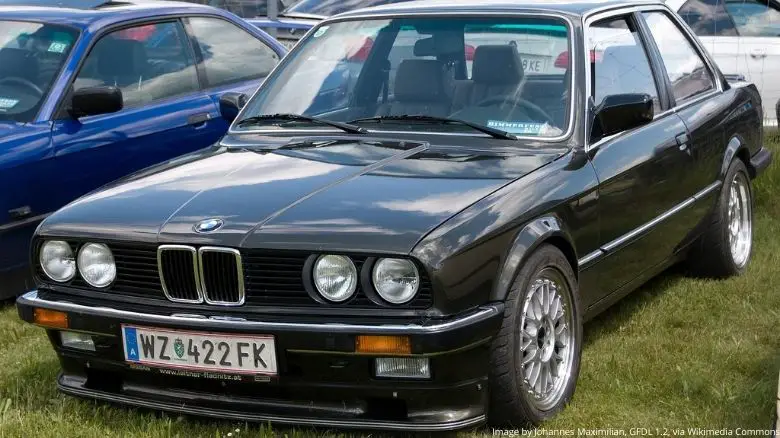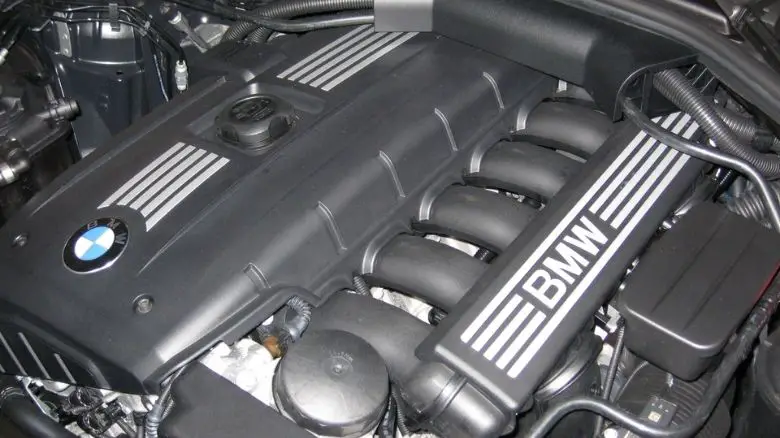How Long Do BMWs Last? (In Years and Mileage)

Adam
Founder, The Car Investor
If you’re considering joining the rank of “Bimmer” owners, one of the first things you’re probably worried about is the durability of the vehicle.
You don’t want to buy a car that will stop working within a year or two, forcing you to either invest in costly repairs or spend money on a new car. So, how long do BMWs last?
BMWs last for over 15 years when maintained correctly. Well cared-for BMWs will last well over 200,000 miles, and in some cases over 250,000 miles. There have also been reports of some BMWs lasting over 300,000 miles, although this is much rarer.
Most people drive about 13,467 miles per year (21,673 km) on average in the USA, so motorists tend to get 15 years of solid use at the very least.
However, as BMWs age the average annual mileage tends to reduce, meaning they can last a greater number of years.
The rest of the article will cover all you need to know about how to make a BMW last as long as possible. We’ll also look at how long BMW engines and transmissions tend to last.
How Many Years Will a BMW Last?
You can expect a BMW to last at least 15 years if it is maintained according to BMW’s service schedule. Many owners report that their BMWs reach this lifespan while others have seen their cars reach the 20-year milestone and beyond.
Numerous examples abound online of people getting more than 20 years out of their BMWs. In some of the examples, the users were the sole driver of the vehicle and made sure it was maintained using the manufacturer-approved parts at all times.
Making a BMW last more than 20 years won’t be hassle-free, as they don’t always grow old gracefully. A number of components will undoubtedly wear out, and consumables such as tires, oil, and other fluids will need to be regularly changed. But this is the same with any car.

On the plus side, older BMWs can be less complicated.
Certain parts that are integral to the car are likely to wear out quicker if:
The car has been driven particularly hard over the years
Regular maintenance hasn’t been carried out
You live in an area with cold winters and salted roads
When it comes to a BMW’s age, it’s often corrosion that can cause the biggest problem.
Corrosion eats away at the car’s structure and metal components, which can quickly make it unsafe to drive and uneconomical to repair. When the roads are salted, this quickly accelerates the corrosion process.
Another factor that occurs over time is the number of owners a car has had starts to increase. The more owners a BMW has had, the harder it can be to establish how well-cared for it has been over the years.
It’s also likely that older maintenance documentation has gone missing, making it difficult to know what preventive maintenance needs to be done.
All of these factors add up and will have an impact on how many years the BMW in question can last.
How Many Miles Will a BMW Last?
Advertisement
A BMW can last over 300,000 miles or more with adequate maintenance. However, the average mileage recorded by most BMW owners is between 150,000 and 200,000 miles.
BMW models reaching up to 300,000 miles may be the exception, but it’s testament to the fact that you can expect excellent durability if you’d like to keep your BMW for the long term.
To get the most out of your BMW, ensure you’re sticking to the recommended maintenance schedule as advised by BMW, and deal with issues before they arise to save money in the long-run.
BMWs are popular cars around the world, and there are plenty of places online that you can learn about the maintenance requirements of your car, such as YouTube and BMW owner forums.
To get your BMW to over 200,000 miles in an affordable manner, you may want to look into the feasibility of performing some of the maintenance work yourself, particularly as your car gets older.

While certain BMWs can be tricky to work on for a DIYer, it does save the labor costs charged by a mechanic, and completing your own repairs can also be extremely rewarding to you as the owner.
How long do BMW transmissions last?
BMW transmissions can last the lifespan of the vehicle with the correct maintenance; over 300,000 miles, or longer than 20 years.
Transmission fluid is the life-blood of the transmission, and for over 20 years many BMWs have been sold with ‘lifetime’ fluid. In theory, this shouldn’t need changing throughout the vehicle’s life.
However, there are many who claim that by changing it every 30,000 to 60,000 miles, it will greatly increase the lifespan of your BMW’s transmission.
If a BMW transmission does end up failing, it can be extremely costly to fix. So changing the fluid every so often seems to be a sensible and relatively inexpensive precaution to take.
If your BMW is struggling to change gear or slipping while in gear, it could be an early warning sign that your transmission is failing.
Always get it checked out by a mechanic or at a BMW dealership as soon as these problems start to occur.
How long do BMW engines last?
Advertisement
You can expect BMW engines to last well over 200,000 miles when operated in accordance to BMW’s recommended maintenance schedule, which includes regular oil and filter changes.
Most complaints about engine reliability occur when owners don’t carry out the basic maintenance that we’ve mentioned. But there are some other factors to keep in mind throughout your ownership.
BMW engines are known to burn oil more rapidly than other cars, so be sure to always keep the oil topped up between services to protect the engine from damage and ensure it will last.

There have also been some instances where components have failed earlier than expected in particular BMW engines, and certain models that have experienced more problems experienced more problems than others, but on the whole, BMW produces reliable engines that last.
Engines often outlive many of the other components that go into a car, and many complaints around BMW failures center around the electronic systems rather than the mechanic components that make up the engine.
Do BMWs Last Longer Than Hondas?
There’s no evidence that BMWs last longer than Hondas. Both manufacturers produce vehicles that can last well beyond the 200,000 miles mark as long as they are properly maintained.
This is a common question that is regularly asked online, with BMWs being perennially associated with quality and Honda vehicles synonymous with reliability.
A better comparison point for both is the cost of purchase. BMWs cost more than Hondas because the former are typically sold as luxury cars. In terms of maintenance, it costs 40% more to maintain a BMW compared to Honda.
Both cars can be expected to last the same amount of time if they are properly maintained, but it will cost you more money if you choose a BMW.
Final Thoughts
Advertisement
BMWs are fantastic luxury vehicles to own. While some models are less durable than others, you can expect an average BMW car to deliver at least 15 years of service if you drive an average amount of mileage per year.
However, any car expert will remind you that the longevity of any vehicle ultimately depends on the care and maintenance it receives from the owner, and BMWs are no exception.
They also happen to be more expensive to look after than many other cars on the road, so some people do neglect the maintenance causing these cars to fail earlier.
If you want your BMW to last, be proactive in your maintenance and always maintain it according to the BMW service schedule, crossing every T and dotting every I.
No spam. We'll only email you when it matters.

About the Author
Adam is the founder of The Car Investor, combining his passion for classic cars with data-driven investment strategies to help collectors maximize their returns.
View all articles →Related Articles

How to Learn to Work on Cars: 8 Simple Steps
Plenty of people dream of being able to fix their own car. There’s something about the inner-workings of a vehicle that just fascinates people. Learning to work on your own car can be a great way to save money, and it can also be a fun hobby.

Is Driving Fast Bad For Your Car?
Driving fast is bad for the engine, drivetrain, suspension and various other components of a car as it causes them to wear more quickly. However, modern cars are built to tolerate speeds much higher than are legal on any public road.

Are Jaguars Good Cars? (And Are They Worth The Money?)
Jaguars are some of the most exceptional high-quality cars around. Their reputation for reliability is improving, their looks are magnificent, and their performance is sublime. Jaguar has a long history of producing great cars, and is continuing to innovate as we move into the electric vehicle era.
Advertisement